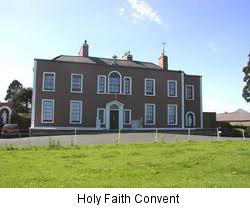Journal Volume 2 1995
The Landing of Arms and Ammunition at Kilcoole, County Wicklow by the Irish National Volunteers in 1914 (continued/5)
The strength of the blockade coupled with the guard on the Bray, Greystones and Wicklow harbours gave many supporters of the Irish Volunteers and those who were to take part in the Kilcoole operation great cause for alarm as they believed that the ‘Chotah’ would be unable to slip through the blockade. At a local level, throughout County Wicklow that week, local Volunteer companies found themselves inundated with people presenting themselves for enlistment such was the outrage people felt over Sunday’s shootings in Dublin. Up to this event most people had treated those who had joined the Irish Volunteers with great derision. From a position of poor support and contempt the Irish Volunteers now found themselves the centre of everyone’s praise and support and local officers worked long and hard hours dealing with the enlistments.
Internationally Europe was on the brink of the outbreak of World War I and as Britain began to prepare for the eventuality of war, on Wednesday July 29th, the naval blockade of the coast was abandoned with the recall of all available warships to Portsmouth and other British naval bases as the various fleets were placed on a war footing and brought up to strength in preparation for the commencement of hostilities. The seriousness of the situation was demonstrated on Thursday July 30th when all available coastguards were taken from their respective stations and sailed for Portsmouth from Kingstown leaving only a skeleton force behind to try and cover the coastline as well as carrying out their normal duties. No replacements were drafted to carry on the coastal surveillance operation so this part of the operation to prevent a further landing of arms by the Irish Volunteers now fell by the wayside.
Landing at Kilcoole
This was the breakthrough that the Irish Volunteers were waiting for and Sean Fitzgibbon, the officer in charge of the Kilcoole landing, issued orders for the mobilisation of those concerned with this operation for Saturday August 1st with great security being maintained.  Remarkably, the Saturday August 1st issues of ‘The Wicklow People’ and ‘The Wicklow Newsletter’ contained accounts from various correspondents about the previous Saturday’s activities in the Kilcoole Area, speculating as to whether or not arms had been landed. But no one in authority seems to have realised the importance of these news items which clearly indicated that Kilcoole was to be a landing site and that the previous week’s events had been in effect a dress rehearsal for the real thing.
Remarkably, the Saturday August 1st issues of ‘The Wicklow People’ and ‘The Wicklow Newsletter’ contained accounts from various correspondents about the previous Saturday’s activities in the Kilcoole Area, speculating as to whether or not arms had been landed. But no one in authority seems to have realised the importance of these news items which clearly indicated that Kilcoole was to be a landing site and that the previous week’s events had been in effect a dress rehearsal for the real thing.
On Saturday August 1st the Volunteers selected for this operation assembled with their respective motorised transport in Dublin and headed off to various spots in County Wicklow on an individual basis spending the afternoon seeing the sites or taking it easy pending the arrival of nightfall. Road maps which had been prepared by a Sean Kenny in Bray gave the routes from Dublin to Kilcoole and in the village itself a Mr. Foley had made arrangements with the Holy Faith Convent that vehicles not directly in use during the operation could he parked there. Some boatmen, some as far away as Bray, had sailed down the coast and had their vessels hidden in readiness for the arrival of the ‘Chotah’ which had sailed earlier that day.


